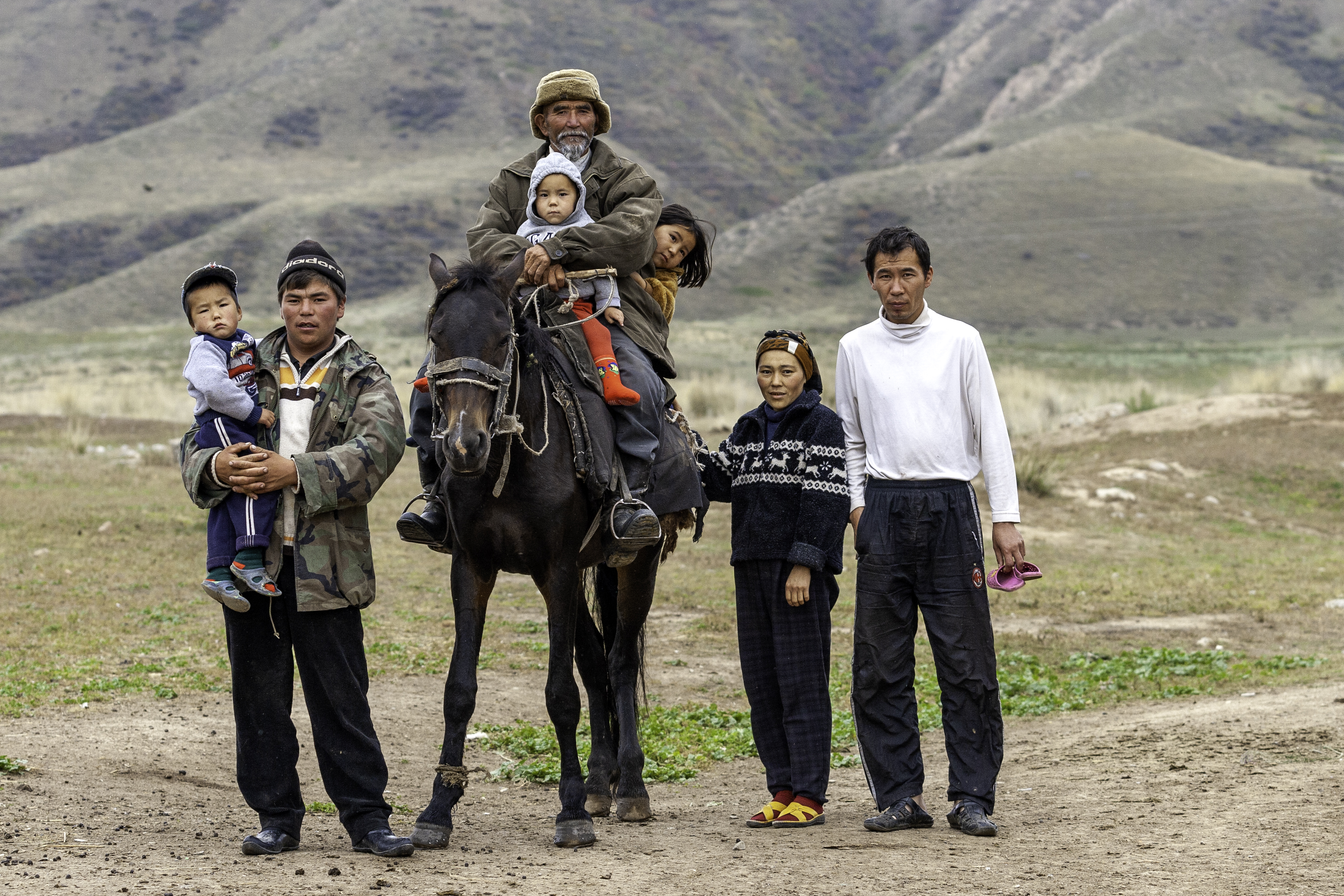Sustainability in Tourism
Nomad's Land aims to increase awareness of ecotourism and responsible travel, for a sustainable development of the tourism sector.
When you travel with Nomad's Land, you accept to share our travel philosophy. Whether you are our client, our partner, our guide or our colleague, you are informed on this page of our policies for the development of sustainable tourism.
Our Mission
- Act with the participation and consent of local communities.
- Return a fair share of the profits to the local community.
- Involve communities, not individuals.
- Contribute to the conservation of biodiversity
- Be environmentally sustainable and require the minimum possible consumption of non-renewable resources.
- Respect traditional culture and social structures.
- Do not force the locals to perform inappropriate ceremonies, etc.
- Work with a local ecotourism partner and infrastructure.
- Promote the training of local guides.
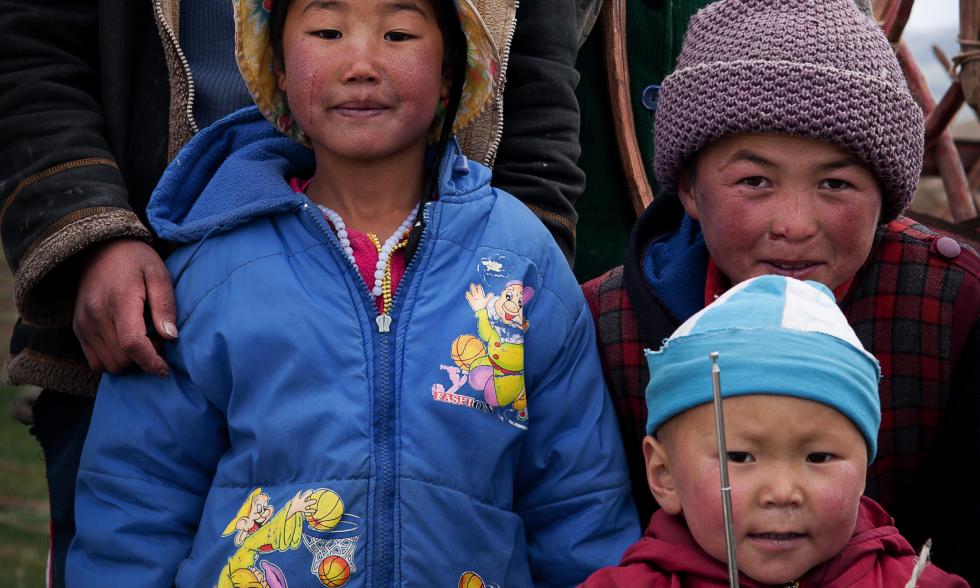
Travelife Partner recognition
The Travelife Partner award is a recognition of our commitment towards social and environmental sustainability.
We are complying to more than 100 criteria related to sustainability management, office operations, working with suppliers and customer communication.
We are working towards further improvements aiming to eventually reach the Travelife Certified stage. Travelife is a leading training, management and certification initiative for tourism companies committed to reaching sustainability.
Travelife is a three-stage certification program for tour operators and travel agents:
- Travelife Engaged;
- Travelife Partner and
- Travelife Certified.
We are at stage 2 – Travelife Partner. We are working to move forward to stage 3 - Travelife certified.
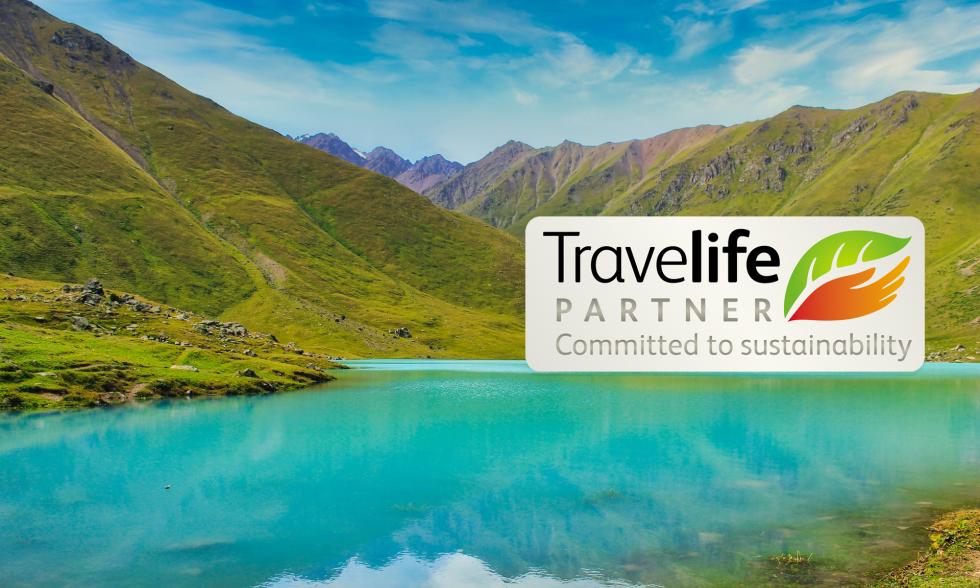
Ethical code of Nomad’s Land
Legal compliance
Nomad’s Asia is in compliance with all applicable local, national and international legislations and regulations, including health & safety, labour, child protection, animal wellcare, environment and ethical standards.
Nomad’s Asia complies with the basic legal obligations required for KATO (Kyrgyz Association of Tour Operators) membership.
Ethical code
It is Nomad's Asia Llc policy to conduct all of our business in an honest and ethical manner. Nomad’s Asia Llc understands and promotes ethical values common to humanity, with an attitude of tolerance and respect for the diversity of religious, philosophical and moral beliefs.
Bribery and corruption
We take a zero-tolerance approach to bribery and corruption and are committed to acting professionally, fairly and with integrity in all our business dealings and relationships wherever we operate and implementing and enforcing effective systems to counter bribery.
We will uphold all laws relevant to countering bribery and corruption in all the jurisdictions in which we operate.
The purpose of this policy is to:
- set out the responsibilities of Nomad's Land and of those working for and with us, in observing and upholding our position on bribery and corruption; and
- provide information and guidance to those working for and with us on how to recognise and deal with bribery and corruption issues.
Bribery and corruption are punishable for individuals and if we are found to have taken part in corruption we could face an unlimited fine and face damage to our reputation. We therefore take our legal responsibilities very seriously.
Who is covered by the Policy?
This policy applies to all individuals working at all levels for Nomad's Land, including senior managers, officers, directors, employees (whether permanent, fixed-term or temporary), committee members, auditors, consultants, contractors, trainees, seconded staff, homeworkers, casual workers and agency staff, volunteers, interns, agents, sponsors or any other person associated with us, wherever located (collectively referred to as workers in this policy).
Political involvement
Nomad's Asia Llc is not affiliated with any political party. However, we do encourage political initiatives in the direction of sustainable tourism development only through professional associations such as KATO and the Kyrgyzstan Mountain Cluster Association.
Fair competition
Nomad’s Asia Llc is not involved in activities that are considered unfair competition or in violation with any anti-trust legislation.
Nomad's Asia Llc trip designers are not allowed to initiate offers to new partner-customers if they already have a local partner offering the same services as Nomad's Asia Llc.
Non compliance and violations
All violations of our policies are recorded in a "Policies violations report" file.
Each violation will be discussed at the next meeting of the office team. Once a year, an analysis will be made of all violations, and concrete actions will be taken to avoid repeating the same violations. The partner or worker will be sanctioned if there is no awareness or improvement.
Supply chain liability :
We declare that we do not have any association to entities that have been successfully prosecuted for forced labor, child exploitation and environmental violations.
Suppliers who respect our ethical rules and policies will be favoured to work within the Nomad's Land family.
Suppliers who do not comply with certain rules will be notified. If no action is taken to improve compliance, then warnings will be given. If the supplier shows no willingness to comply or makes no effort, then they will be banned from our supplier list.
Consumer Rights :
Employees will at all times respect customer privacy and take reasonable measures to ensure the security of personal data they collect, store, process or disseminate.
The rules of customer privacy are defined in our following policy and available on our website in 4 languages: https://nomadsland.travel/en/privacy
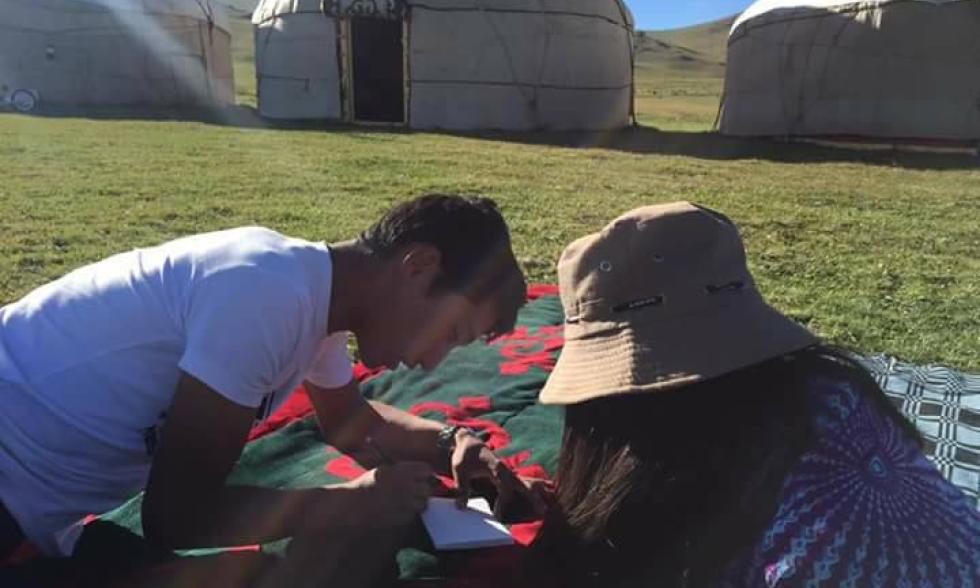
Our Labor Policy
The following statement of principles and intentions represents the Policy of the employees of the LLC "Nomad's Asia" under the trademark "Nomad's Land". This policy has been developed in accordance with the requirements of the international Travelife Certification System for Sustainable Tourism.
Principles
- We strive to provide and maintain a suitable and safe work environment to ensure the protection of all employees.
- We undertake to comply with all relevant laws and regulations, as well as all other requirements to which the agency adheres in terms of safety and labor legislation.
- We strive to constantly improve the level of occupational health and safety at the workplace, as well as to improve the well-being of employees.
We are doing our best to achieve the following goals:
- Provide work as much as possible.
- Ensure equal opportunities for all employees.
- Protect human rights and prevent any form of discrimination, racism, intimidation, ill-treatment or harassment.
- Zero accidents and incidents.
- Safe and healthy working conditions for all our employees.
- Providing safe products and services.
- Hiring employees without any discrimination.
- We will undertake training if the candidate is insufficiently educated.
- Ensure continuous training of all our employees.
Intention
- Comply with all relevant social security laws by providing sufficient wages and benefits in accordance with national legal standards or more, observing appropriate working hours, paying overtime, observing the legal age for employment.
- Provide additional benefits, whenever possible, during non-social working hours.
- Create and maintain a healthy, open and sufficient channel of communication with employees, providing freedom to express complaints and opinions.
- To grant all employees the right to join a trade union or to form a trade union of their choice and to conduct collective bargaining.
- Identify and assess all health and safety risks associated with our activities and implement continuous control measures to ensure the prevention of accidents, illnesses and incidents for our employees, customers and others within our activities.
- Set and revise management goals, objectives and plans to address occupational health and safety issues, as well as the well-being of employees.
- Minimize accidents and incidents in the workplace and improve our facilities and working methods in terms of safety.
- that all employees are aware of their individual responsibilities to act in accordance with the Policy.
- Provide equal opportunities for training and promotion.
Bring our Policy to the attention of our employees and review it regularly to adapt it to our services and activities.
All Nomad employees and management in Asia are involved in this effort.
This policy is available upon request to all interested parties.
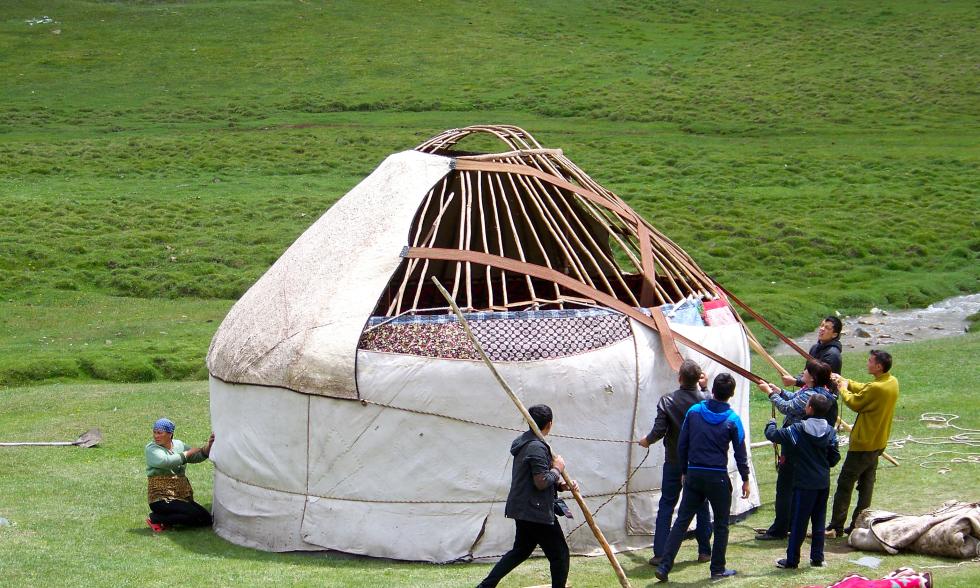
Our Child Exploitation Policy
Child Sexual Exploitation Policy
Nomad's Asia LLC is committed to protecting children who can be part of our supply chain.
We firmly believe that children should not be harmed, and we condemn the exploitation of children and young people under the age of 18 who may have been persuaded by an adult to come and stay at our hotel and receive free accommodation, drinks and food in exchange for sexual acts.
We also condemn the general exploitation of children for commercial sexual purposes, illegal human trafficking, child abuse, child labor and child marriage. The Contact Code for the Protection of Children from Sexual Exploitation in Travel and Tourism, Child Sex Tourism, is defined as the commercial sexual exploitation of children by men and women who travel and at the destination where they engage in sexual acts with children and any persons under the age of 18.
Our staff is trained to be alert to recognize possible cases where children may be at risk when placing adults in a hotel, especially when it comes to only one adult and one child. It is expected that employees will be encouraged to report to management any problems related to child protection.
The Management undertakes to monitor all reports and send information about the exploitation of children to the appropriate authorities.
We are actively conducting a campaign to protect children in our company so that our customers know our position.
We will find ways to provide positive support to local children in our community, including raising general questions about the vulnerability of children to local authorities and public associations.
Nomad's Asia LLC Sexual Exploitation of Children
Politics
Under the brand “Nomad's Land"
December 2021
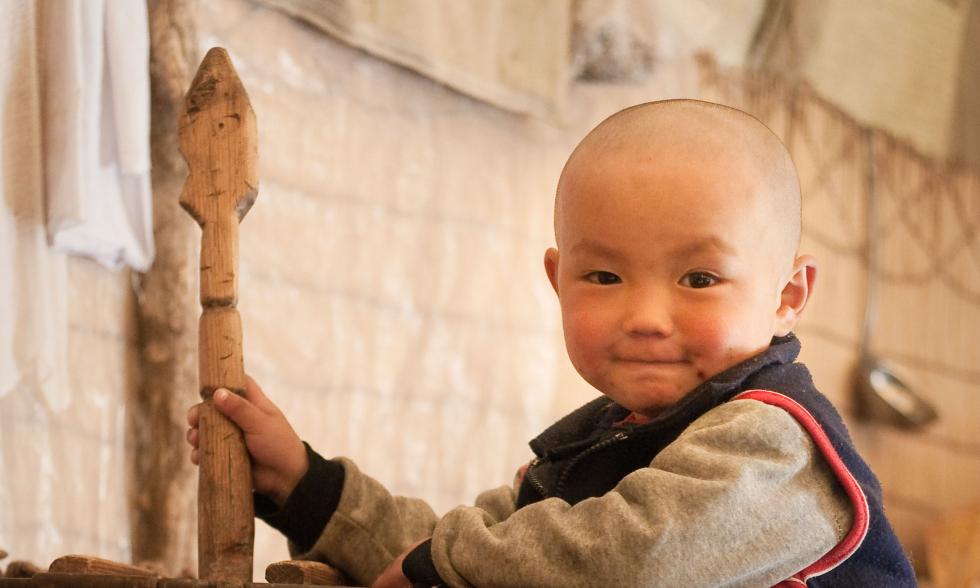
Sustainable Accommodation Policy
Sustainable Accommodation Policy
Our company strives to promote sustainable accommodation.
The environmental friendliness of the accommodation facility is of paramount importance, as it allows our company to extend the practice of sustainable development to the central element of our visits. In most cases, we choose housing for our clients, but when there is a choice of housing, our clients can choose it. In this case, our policy is to recommend to our guests the most acceptable accommodation options within their budget. When choosing accomondation, we give preference to institutions that adhere to sustainable practices in all aspects of their activities.
Scope
This policy will be part of the Sustainable Development Policy. The policy applies to the choice of hosting providers with which our company cooperates.
This policy comes into force immediately after approval by the Director-General and its distribution to the staff. The policy will be officially reviewed every 2 years to ensure its relevance. The Chief Executive Officer or an official authorized by this body must approve any deviation from this policy.
Principles of Sustainable Accommodation
In our efforts to select the most sustainable housing providers, we give preference to establishments that follow these fundamental principles:
1. Comfort corresponds to the price
The establishment is hygienic, sanitary, and safe and is able to offer good comfort and service in accordance with the expectations of our guests. Sustainable hosting methods can be found in all price ranges; that is why we strive to identify the most sustainable options available within our customers' budgets.
2. Fair trade
The institution adheres to fair business practices, including transparency and compliance with the law, human rights, and economic/social justice, as well as environmental and animal protection.
3. Minimizes the impact on the environment and society
The Institution gives priority to sustainable practices, striving to minimize their impact on the environment and society.
General considerations on sustainable development
Currently, there is no internationally certified housing in Central Asia, but there are institutions recognized for their best practices. Sustainable methods can be found in all budget ranges. That is why our company mainly studies their practices to determine the most responsible suppliers.
Housing ratings by our company can be carried out in several ways:
- Site visit by the coordinator/responsible for the sustainable development of our company
- Observations of our guide
- Customer Feedback form
The following considerations will be taken into account when evaluating accommodation facilities and will determine the preferences of our company:
Caring for a person
We strive to work with establishments that take care of their human resources, which is of paramount importance for the hotel sector. Therefore, we evaluate whether the institution offers good working conditions for its employees (minimum wage, reasonable working hours, appropriate lunch hours, etc.).
No plastic policy
The hotel minimizes the use of plastic and, as a rule, does not offer its guests plastic water bottles. Instead, the establishment provides places where guests can fill the pitchers provided in the room and their own bottles.
Wastes
We check that at least organic waste for composting and plastic/metal/glass for recycling are separated in the room. Preference will be given to facilities that are able to go beyond these basic waste management methods.
Energy efficiency
The hotel adheres to the principles of energy efficiency, such as energy-saving light bulbs and energy-efficient equipment. The housing provider advises its guests (for example, by using signs in rooms and corridors) to turn off lights and electrical appliances when they are not in use, or has implemented a comprehensive shutdown plan (automated system). If the company is not connected to the national grid, it will not use an oil generator. It can use solar energy, hydropower, candles, and a wood-burning stove. The use of strictly dead wood for heating the room (yurt or mountain hut).
Water use efficiency
The accommodation uses water efficiently. Places with a water-saving system on their "western" toilets and showers will be preferable to others. Places where flushing is used for the toilet and/or shower with a bucket also have clear control over the amount used.
Protection of the rights of the child
The institution ensures the observance and protection of the rights of the child. If the supplier employs children under the age of 14, the company must ensure that special working conditions are created to protect them (for example, part-time or internship).
Local supplies
Guests are encouraged to buy and use local food made in accordance with the principles of fair trade and sustainable development.
Protection of biological diversity
The placement limits as much as possible the negative impact of char on local and global biodiversity (for example, the absence of species listed in the Red Book in the menu).
Genuine charm
A residential building (exterior and/or interior) includes elements of art, architecture, or local cultural heritage. The staff wears traditional clothes. A warm welcome has been organized.
Social values
The institution respects the intellectual property rights of local communities and contributes to the local community in any way possible (for example, sponsorship of local events, donations to local heritage sites).
Stimulating the improvement of sustainable methods
Our company adheres to a long-term strategy of increasing the sustainability of conventional hosting providers. Upon request or on our own initiative, we support joint initiatives with other tour operators and/or interested parties to promote the sustainable development of accommodation facilities in our destinations.
Whenever possible, we discuss with the owner/manager of the accommodation his current practice and what he could do to follow more sustainable practices (for example, through a visit from our manager or through our guides).
In addition, we can share standards and best practice tips with our hosting providers, including:
- Hotel certification information, such as Travelife for Hotels
- Self-assessment tools
- Training manuals
Sanction
If it turns out that the hosting provider is acting in accordance with unstable practices, our company will issue them a warning. If this supplier does not change its practice, our company will cease all forms of cooperation (informal and contractual) and will blacklist this company for further cooperation.
Communication with accommodation providers
Our company interacts with accommodation institutions in various ways.
Email
Most often we communicate by email and phone. Especially when sending emails, we can report on certain aspects of sustainable development.
Facebook Group "The family from Nomad's Land”
The most up-to-date information can be found in our Facebook group “The Nomad's Land family". When you are part of this group, you accept our philosophy and are interested in becoming more sustainable.
Website
To avoid unnecessary waste of paper, we invest a lot in our website: You can find the entire sustainability policy on our website.
Contracts
We sign contracts with hosting providers with whom we work regularly and with a sufficient number of clients. These contracts include an overview of our codes of conduct and sanctions, which suppliers read and sign after approval.
Visit in person
When we have the opportunity, we personally visit the housing and explain to them how they could improve their services and become more sustainable. In many cases, it is our guides who convey these messages.
What we report
Our company promotes as a mandatory policy:
- Child labor
- Fight against corruption
- Energy efficiency and efficiency of water resources use
- Wastes
- Protecting biodiversity
Encouragement
Our company will give priority to working with accommodation facilities that are able to operate in a sustainable manner, taking responsibility for their impact on the environment and society. When we have sufficient volume, we can offer additional benefits, such as hotel marketing on our website or special contractual terms.
Approval date: December 2021
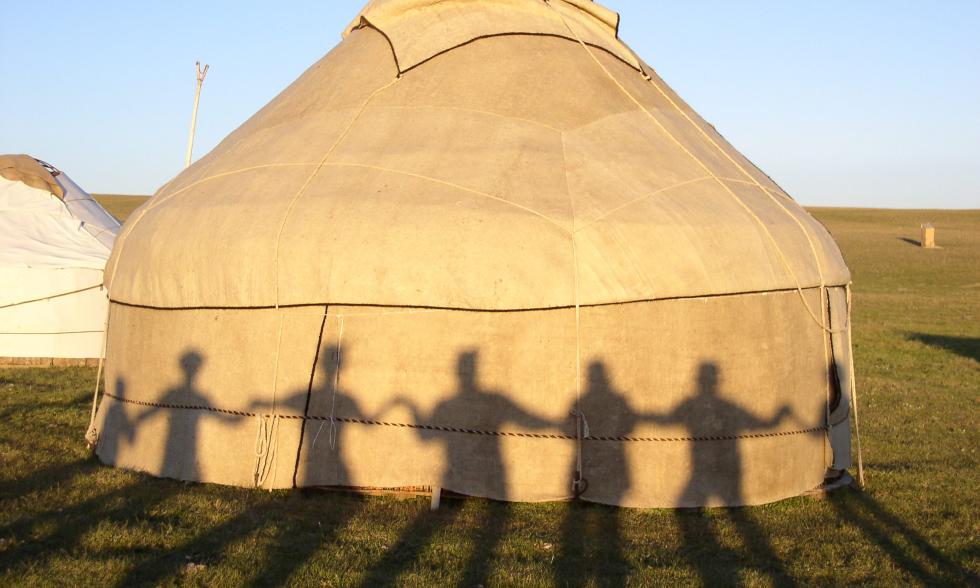
Tour policy
Tours:
- We do not offer tours that are harmful to people, animals, plants, natural resources, or that are socially and culturally unacceptable
- During trips to natural areas, we refuse single-use plastic, and we do not leave garbage behind (we collect it and dispose of it safely at designated points)
- We do not promote souvenirs containing endangered species of flora and fauna as stated in the CITES treaty and the IUCN Red List; or historical and archaeological artifacts (except as permitted by law)
- Advise guests on standards of behavior during tours and activities with an emphasis on respect for local residents and communities, local culture, nature, and the environment
- When planning tours, we take into account climate, tour terrain, loads, and maximum time of use
Excursions involving animals:
- We do not offer any tours involving wild animals in captivity, except for properly regulated activities in accordance with local, national, and international laws;
- Not related to companies that harvest, consume, exhibit, sell or trade wildlife species, except as part of a regulated activity that ensures that their use is sustainable and complies with local, national, and international laws;
- Think twice when arranging tours involving animals
- We choose experienced suppliers who comply with Kyrgyz regulations and laws, and who treat their animals responsibly and with care
- We instruct tourists on how to behave with the animals in order to avoid any risks, under no circumstances do we accept tourists under the influence of alcohol or drugs
- All animals that take part in our tours or shows are well fed and well cared for.
Special rules regarding horseback tours:
- Selecting an experienced vendor and groom
- Equipment - Checking the helmet for the hikers
- Check the carrying capacity (man - up to 100-110 kg, parter up to 80 kg)
- Distance - about 16 km a day, the operation - 6 hours in the mountains, on a straight track - 8 hours
Special rules relating to the show with the birds of prey:
- Do not use red-listed birds (falcons)
- We check if we have the appropriate equipment (a cap etc.).
- We don't take birds away from their habitat.
- We follow the appropriate clothing for tourists (no hanging items in the clothes)
- Do not use a drone when filming
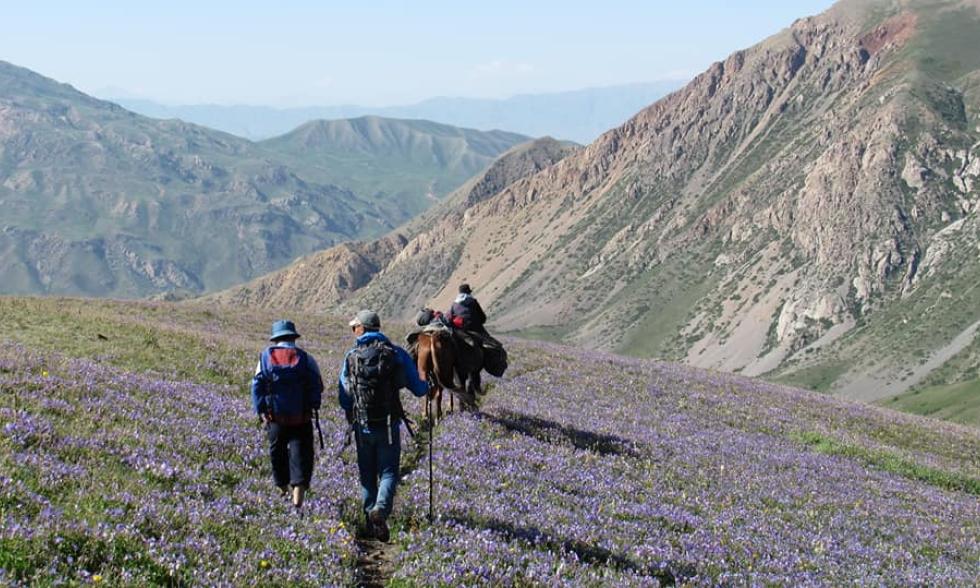
Green Office Policy
Conserve water
- Turn off the water immediately after use.
Reducing water consumption through more efficient use of water by consumers leads to greater energy and water savings in water systems.
The production and disposal of disposable bottles consume a lot of water and energy. Therefore, it is better to buy products in reusable and returnable glass or PET containers. It limits the consumption of materials and energy. Fruits and vegetables often have to be transported long distances before they reach the supermarket. Growing, processing, and transporting requires a lot of water and energy. Buying regional seasonal products is much more environmentally friendly.
Reduce your waste
Our task is to minimize the amount of waste from the office by implementing the practice of sorting and recycling.
- Used batteries are collected in a separate box and then handed over to collection points.
- All paper waste is collected in a waste paper bin provided by Paper.kg, a paper recycling company.
- Brochures are printed on environmentally friendly paper
- All PET containers are collected separately and handed over to garbage collectors.
- Printing uses both sides of the paper.
- Plastic bags are kept in desk drawers so employees can reuse them instead of taking a new bag from the store.
Save and maximize energy
These are our measures to increase our office energy efficiency:
- Using 100% ecological and local energy.
- Individual computers and printers are turned off daily.
- All shared copiers and scanners are turned off or placed on standby at the end of each day.
- Lights are turned off in unoccupied rooms.
- We save energy on lighting and technical equipment by purchasing low-energy devices.
- Fans are used to cool rooms, not air conditioning.
Walk and travel green.
Less pollution, more benefits.
To the idea of reducing our carbon footprint, we encourage our employees to travel by public transport, and employees have the opportunity to work online from home.
Purchasing sustainable products based on green criteria is key to our commitment.
Buying local encompasses a potential way forward to reduce greenhouse gas emissions associated with transport. It is one of the levers of sustainable procurement.
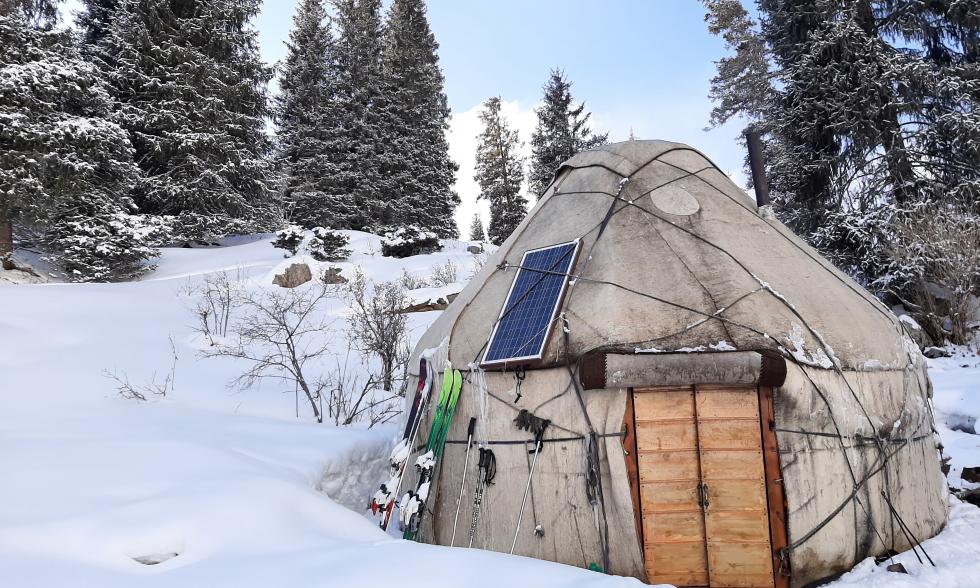
Nomads Land's Guide to Tours Involving Animals
All animals should receive disease prevention and veterinary treatment, appropriate shelter, nutrition, and humane treatment.
Animals in captivity should be cared for and provided with everything they need to maintain their well-being.
Five Freedoms for Animals:
- Freedom from hunger and thirst
- Freedom from discomfort
- Freedom from pain, injury, or illness
- Freedom to express normal behavior
- Freedom from fear and suffering
Minimum requirements for tours with involving animals:
- All animals have regular daily access to adequate and clean drinking water according to the needs of their species
- All animals receive adequate food
- In captivity, enclosures (including pools) or methods used to temporarily house animals allow all animals to move and exercise freely and maintain sufficient distance from other animals in case of conflicts
- Captive enclosures are clean, hygienic, and kept in good condition
- The facility employs a veterinarian with expertise in the health and welfare of the animals involved (either locally hired or outsourced).
- There is a policy not to surgically alter the skin, tissues, teeth or bone structure of animals, and not to sedate animals to make them safe to handle
- If clients are allowed to take pictures with animals, this should not be an indication of bad faith.
- All animals obtained from the wild must be properly documented.
- If animals participate in shows, they must include only natural behavior and no bad habits.
- All tourism businesses that offer animal attractions and entertainment should strive to achieve best welfare practices.
- Animals may not be displayed in restaurants and entertainment venues
- Breeding animals for commercial trade is prohibited
- Animals may not be used as props for photographs
- Excursions involving animals
- Do not offer any tours involving captive wildlife except for properly regulated activities in accordance with local, national and international laws;
- Not to be associated with companies that harvest, consume, exhibit, sell or trade wildlife species, except as part of a regulated activity that ensures that their use is sustainable and complies with local, national and international laws;
- Think twice when arranging tours involving animals
- Choose experienced suppliers who comply with Kyrgyz regulations and laws, and who treat their animals with care and responsibility
- To instruct tourists on how to behave with animals in order to avoid any risks; never let tourists under the influence of alcohol or drugs.
- All guides are trained in safety and will respond quickly if something happens
- Keeping an eye on the safety of the tourists as well as the animals.
- Animals are veterinary compliant, we check that they have a veterinary booklet
- All animals that take part in tours or shows are well fed, live in good conditions, treat them with care (we don't beat the animals or use spurs)
- When planning tours, consider climate, terrain, load and maximum time of use
- Special rules for horseback riding tours
- Choose an experienced groom
- To choose horses according to the experience of the tourist and the nature of the animal, the weight and height of the tourist
- Check the availability of appropriate equipment (horseshoes, etc., bib, colt.) The stirrups should be adjusted to the height and comfort of the hiker.
- Equipment - use a saddle and check the helmet for hikers.
- Before the start of the tour remove the saddle from each horse and check the condition of the back of the animal, if they are no wounds caused by friction of the saddle.
- Check carrying capacity (man - up to 100-110 kg, parter up to 80 kg)
- Distance - about 16 km a day, the operation - 6 hours in mountain conditions, on a straight track - 8 hours
- To give safety instructions to tourists
- Train horse guides - all over 18 years old
- If the horses were brought from another area for the tour, give them at least half a day to rest and then start the tour.
- It is recommended to have one spare horse per group, in case one of the horses is injured, clients will have an opportunity to mount a spare horse.
- Special rules regarding shows with birds of prey:
- Do not use red-listed birds (falcons)
- Check availability of proper equipment (cap, etc.)
- Do not take birds away from their habitat
- Do not use live animals for prey in demonstrations
- Observe the appropriate clothing for tourists (no hanging items in clothing)
- Not to use drone while filming
Requirements for the guide conducting excursions with participation of animals:
- At least 18 years old
- Love for animals and knowledge of their habits
- Tolerance
- Specially trained people
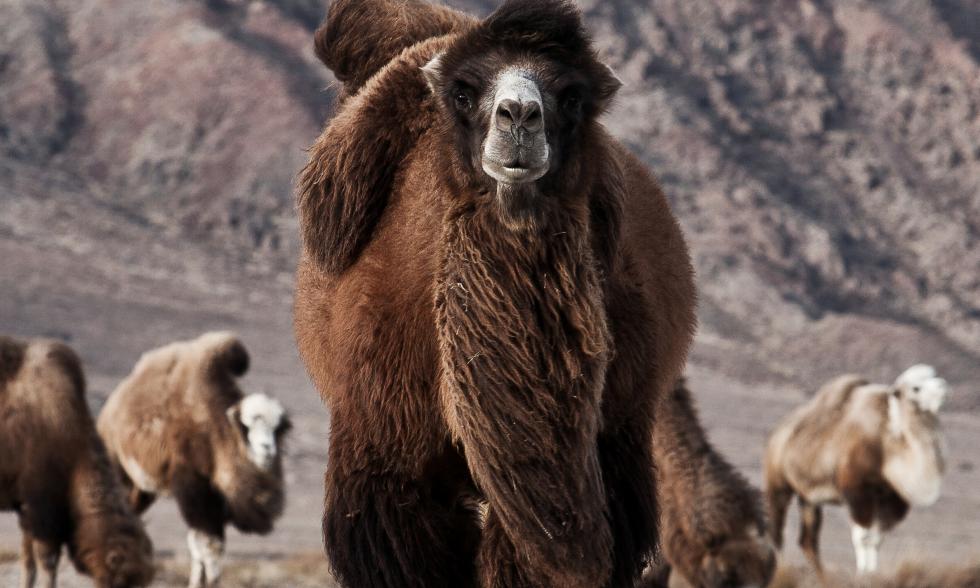
Health and Safety policy
Our first and single biggest objective is the reduction of risk to health and safety as far as is practically possible.
Nomad’s Land has a health & safety policy which can be found below together with how each of these policy points is implemented.
In the countries we suggest you visit, international standards are not applied for various reasons such as the lack of training, a rescue column, helicopter rescue, etc. This is why at Nomad's Land we take particular care in the choice of the guide team, the drivers and our local partners, but also the choice of the days that we offer you. Before your arrival, we will have tried to anticipate any problems that may arise during your stay.
We also have strong relationships with local communities, health care facilities and authorities such as National Park Rangers, Ministry of Emergencies, National Alpine Club, National Mountain Guides Association.
Our priorities are:
Information and Advice before you go
- Provide relevant health and safety information to all clients before they arrive in-country;
- Advise staff and clients to contact their doctors or travel clinics for immunisations before traveling;
- Check if insurance covers countries visited and save copy with urgent phone number;
- Provide proper kit lists and equipment information relevant to the trip;
- Provide information on the various environments to be visited, with respect to safety, local politics, culture, etiquette and social responsibility;
- We update this information on our website : https://nomadsland.ch/en/before-you-go/info
Staffing
- Ensure that appropriate qualified and/or experienced staff are employed in the regions where we operate and that all field staff and group leaders are trained in safe operating procedures.
- Ensure that all staff go through an on-site induction, which includes training in the relevant procedures, and a probationary period prior to being given responsibility over a group.
- Improve our operating procedure regularly in each area followed by meetings of all relevant staff to identify corrective actions.
When you arrive
- Safety information provided and relevant addresses of medical facilities and company personnel during a general briefing and also special briefings when required
Risk Assessments
- Identify the risks associated with activities and locations, as well as the development of measures to minimize these risks.
- Enlarge the database of risk assessments on location or trip.
- Ensure that all staff are aware of the risk assessments and how to fill in an incident form.
- Continually update and evaluate the risk assessments.
- Make clients aware of safe practices and risk assessments.
- Always use reliable and safe vehicles which have the required paperwork.
Activities
- Ensure trekking teams remain in contact with each other and that whistles, phones and torches are carried along with the first aid kit.
- Make sure clients understand the risks associated with additional activities such as horseback riding and hiking, or any hazardous activity, and ensure that all safety procedures are followed.
- Comply with all National Park codes of conduct, mountain safety codes of practise and applicable rules for entering areas where a safety policy exists.
- Make sure cooking and washing is done in boiled water, and that both staff and clients are encouraged to follow hygienic practices.
Evacuation and Emergency
- Ensure that there are adequate communication facilities provided to staff, either by mobile phone or satellite phone, and that applicable numbers are all known.
- Ensure that all staff are fully aware of where the nearest and best medical facility is.
- Ensure that clients are given telephone numbers of our local staff.
- All gap clients have access to a qualified medical person nearby and a member of staff who can provide immediate assistance.
- All teams must carry a first aid kit, and first aid kits are also kept in our various guesthouses.
- Ensure that all staff understand what to do in order to facilitate an evacuation which is either high priority (requiring immediate evacuation by helicopter), medium priority (fastest route to the nearest hospital) or low priority (most convenient and comfortable overland or over water route).
- Keep records of all incidents, accidents and emergencies.
- Carry out a post-incident evaluation to improve procedures in the future.
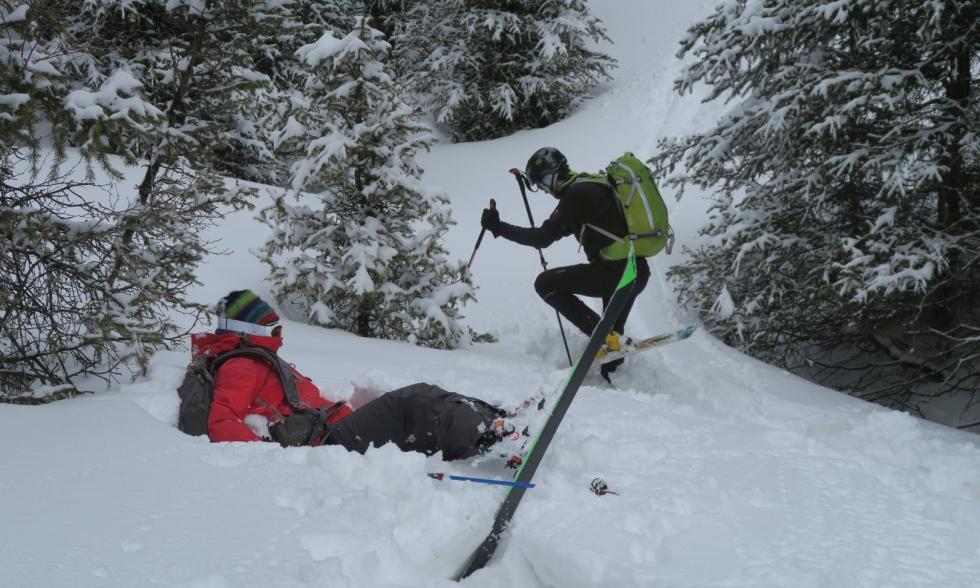
Your feedback is very important for us
If you noticed something during your trip that did not comply with our policies, or if you have any questions, please contact our sustainability manager aisulu@nomadsland.travel


